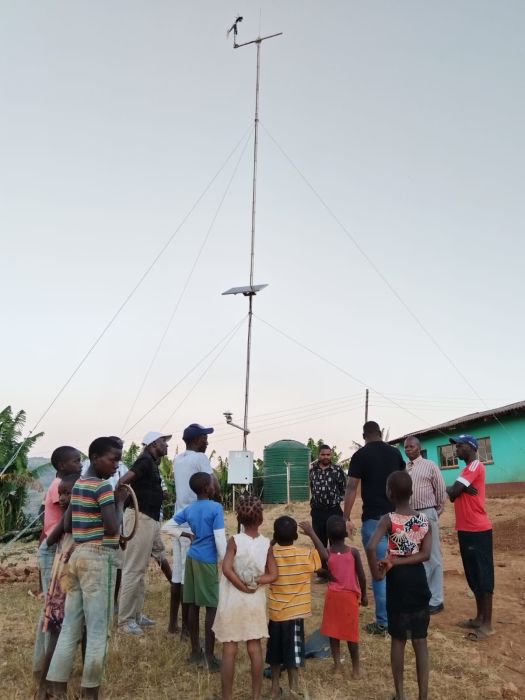




Overview
As part of the United Nations Development Programme's (UNDP) Climate Adaptation Water and Energy Programme (CAWEP), Campbell Scientific played a pivotal role in bolstering climate adaptation efforts in Zimbabwe by installing eighteen automatic weather stations (AWS). These weather stations—adhering to World Meteorological Organization (WMO) requirements—were strategically placed across four districts: Binga, Chipinge, Chivi, and Insiza. The project aimed to strengthen early warning systems (EWS), increase water accessibility, and improve energy sustainability, thereby fortifying communities against the adverse impacts of climate change.
The Challenge
Zimbabwe's vulnerability to climate change posed significant challenges, especially in water and energy sectors. The country's heavy reliance on rain-fed agriculture made it susceptible to changing weather patterns, resulting in food insecurity, disrupted education, compromised health services, and economic instability. The dire fiscal situation and deteriorated infrastructure further hindered effective responses to climate-related crises. The nation's ambitious climate targets required substantial funding for green infrastructure projects to mitigate and adapt to these challenges.
The Solution
Campbell Scientific's collaboration with the UNDP CAWEP initiative facilitated the AWS deployment across strategically selected districts. These AWS units were equipped with state-of-the-art components, including data loggers, communications systems, and data-acquisition hardware, to comprehensively monitor weather patterns, water availability, and energy dynamics. Campbell Scientific also provided extensive training to the Zimbabwe Meteorological Department, covering station components, system setup, data acquisition, and programming in CRBasic.
The Benefits
- Enhanced EWS: The installed AWS units will significantly improve early warning capabilities, enabling timely alerts for extreme weather events such as droughts and floods. This proactive approach will empower communities to take precautionary measures and minimize damages.
- Water Access and Management: By monitoring rainfall patterns and water availability, the AWS units will contribute to better water resource management. This will play a crucial role in bolstering water accessibility for both agricultural production and household use during challenging periods.
- Clean and Affordable Energy: The AWS installations facilitated energy-related data collection (such as solar radiation and wind) supporting the sustainable development of clean and affordable energy solutions. This is particularly relevant for rural areas with limited access to conventional energy sources.
- Data-Driven Decision-Making: The comprehensive data from the AWS empowered policymakers, researchers, and communities to make informed decisions about resource allocation, disaster preparedness, and sustainable development initiatives.
- Capacity Building: The Campbell Scientific training enabled the Zimbabwe Meteorological Department to effectively operate and maintain the AWS units, ensuring the long-term sustainability of the project's benefits.
- Contribution to Climate Resilience: The AWS installations aligned with Zimbabwe's commitment to the Paris Agreement and its National Determined Contributions (NDC), fostering climate resilience and demonstrating tangible progress toward climate adaptation and mitigation goals.
Campbell Scientific's collaboration with the UNDP CAWEP initiative to AWS units in Zimbabwe's vulnerable districts exemplify a successful model for leveraging advanced technology to enhance climate resilience. By addressing key challenges related to water, energy, and EWS, this initiative contributes to sustainable development, empowers communities, and supports Zimbabwe's efforts to effectively respond to the impacts of climate change.
Case Study Summary
Application
Strengthening early warning systems, increasing water accessibility, and improving energy sustainabilityLocation
Binga, Chipinge, Chivi, and Insiza Districts of ZimbabweProducts Used
SMP10-L HMP155A-L CR1000X 107 05103-LRelated Website
Unlocking Zimbabwe's Capacity to Address Climate ChangeView the PDF